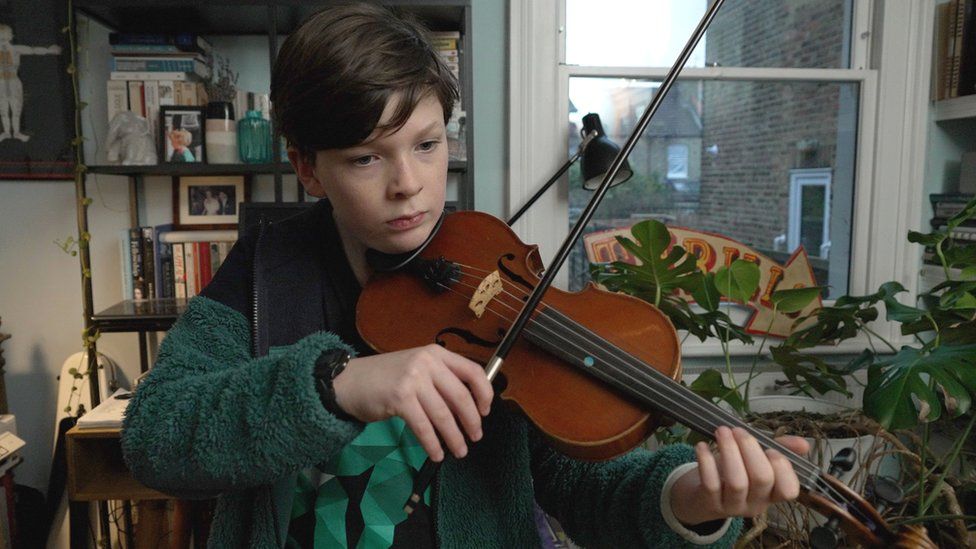-

-
-
Loading

Loading

A new type of drug treatment is being used to help children with cancer, which is much less toxic than traditional chemotherapy. One of the first children to try this treatment is 11-year-old Arthur, who has blood cancer. His family refers to this therapy as "a little bit of sunshine" because it worked without causing Arthur to feel much sicker. In addition, the treatment can be given outside of the hospital, allowing Arthur to spend more time at home with his family doing the things he enjoys. Arthur carried the treatment with him in a portable backpack. This treatment, called blina or blinatumomab, was the best option for Arthur after chemotherapy was unsuccessful in clearing all of his cancer and left him weakened. While blina is already licensed for use in adults, experts are hopeful that it can also be shown to safely help children. Currently, 20 centers in the UK are using blina off-label to treat children with B-cell acute lymphoblastic leukemia. Blina is an immunotherapy that targets cancer cells so that the body's immune system can identify and destroy them. Unlike chemotherapy, healthy cells are left unharmed. The treatment involves a bag of liquid connected to a plastic tube that remains in the patient's arm for several months. A battery-operated pump controls the flow of the drug into the bloodstream, allowing for fully portable treatment. For Arthur, this meant he could engage in activities like playing on a swing in the park while receiving treatment. Unlike intensive chemotherapy, blina did not weaken him to the point of being unable to enjoy his days. Arthur was given medication to prevent serious reactions or side effects before starting his infusion. Initially, he experienced some bouts of fever and required hospital checks, but he was soon able to return home. Despite the noise from the pump, Arthur was able to sleep well at night with the backpack by his side. Arthur's mother, Sandrine, described the transition from chemotherapy to blina as a relief, as chemotherapy had been very tough on him. While Arthur needed to return to the hospital every four days for treatment top-ups, he was able to manage the majority of his treatment at home. Arthur embraced his responsibility in the treatment process. In April 2023, he underwent the final operation to remove the tubing from his arm, signifying his freedom from cancer. Doctors believe that blina could replace a significant portion, potentially up to 80%, of traditional chemotherapy. Approximately 450 children in the UK are diagnosed each year with Arthur's type of cancer. Professor Ajay Vora, a chief investigator and consultant pediatric hematologist, explains that traditional chemotherapy not only kills cancer cells but also harms healthy cells, resulting in side effects. Blinatumomab, on the other hand, is a gentler treatment. Another immunotherapy drug called chimeric antigen receptor T-cell therapy (CAR-T) is also available but is more expensive and requires additional time in the lab for cell alteration. Thanks to the treatment, Arthur is now cancer-free, bringing about double celebrations for his family.